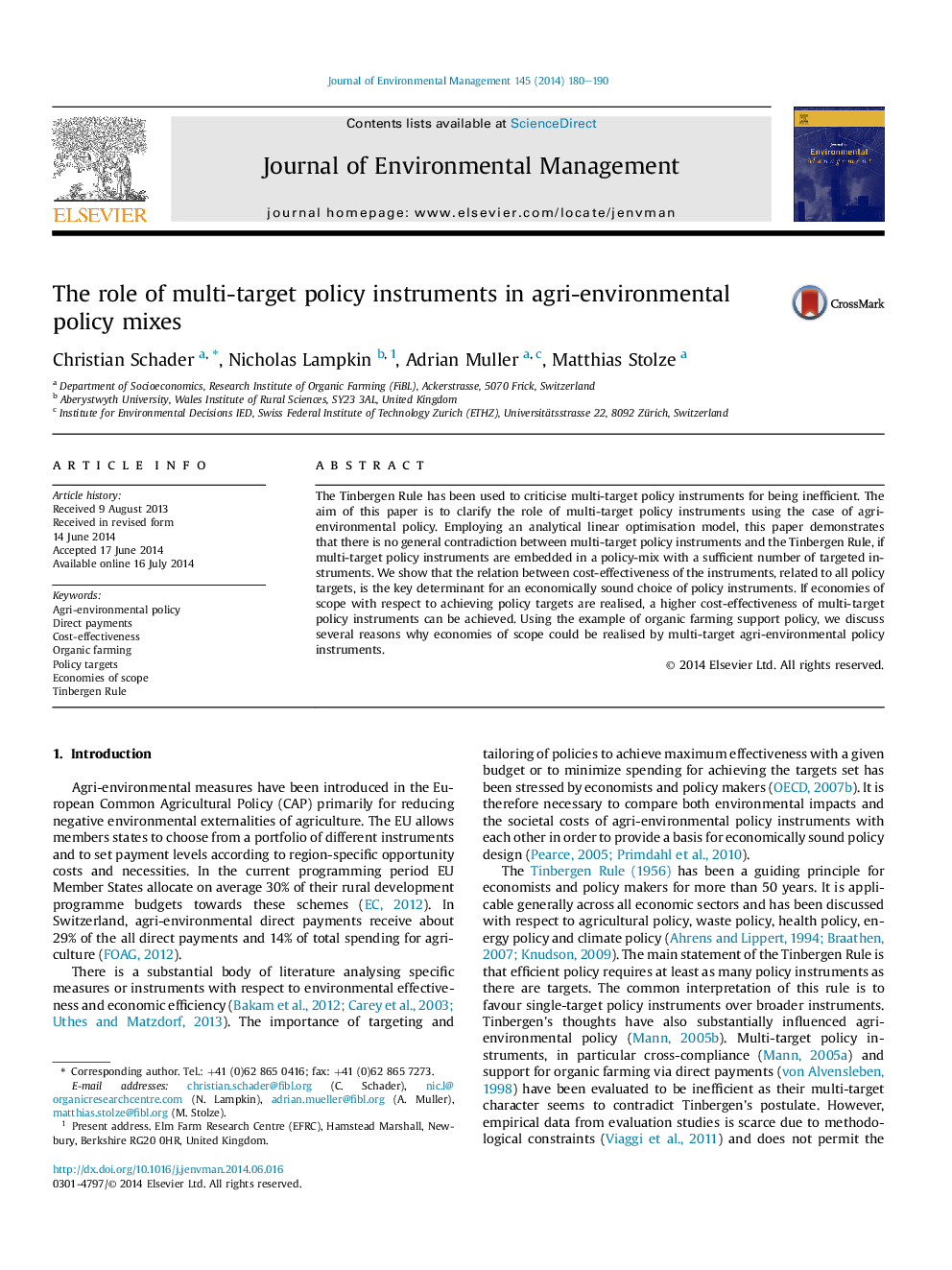| Article ID | Journal | Published Year | Pages | File Type |
|---|---|---|---|---|
| 7483490 | Journal of Environmental Management | 2014 | 11 Pages |
Abstract
The Tinbergen Rule has been used to criticise multi-target policy instruments for being inefficient. The aim of this paper is to clarify the role of multi-target policy instruments using the case of agri-environmental policy. Employing an analytical linear optimisation model, this paper demonstrates that there is no general contradiction between multi-target policy instruments and the Tinbergen Rule, if multi-target policy instruments are embedded in a policy-mix with a sufficient number of targeted instruments. We show that the relation between cost-effectiveness of the instruments, related to all policy targets, is the key determinant for an economically sound choice of policy instruments. If economies of scope with respect to achieving policy targets are realised, a higher cost-effectiveness of multi-target policy instruments can be achieved. Using the example of organic farming support policy, we discuss several reasons why economies of scope could be realised by multi-target agri-environmental policy instruments.
Keywords
Related Topics
Physical Sciences and Engineering
Energy
Renewable Energy, Sustainability and the Environment
Authors
Christian Schader, Nicholas Lampkin, Adrian Muller, Matthias Stolze,
